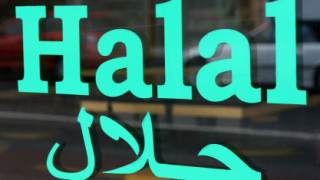Student disqualified for criticising halal meat
- |

Tim Dieppe comments on the recent disqualification of a student’s GCSE Religious Studies exam paper simply for criticising halal meat.
A 16-year-old vegetarian student was disqualified for “obscene racial comments” when she made observations about halal meat in her Religious Studies exam in June.
The Sunday Telegraph reported that Abigail Ward was informed by exam board OCR that she had committed a “malpractice offence” and would be disqualified from the GCSE “due to obscene racial comments being made throughout her exam paper.” Her school appealed the decision, explaining that she is a strict vegetarian and that her comment “which I find absolutely disgusting” related to her finding halal butchers disgusting because she is vegetarian. The school explained that no other comments in the paper that could be construed as racist.
Appeal upheld
The exam board upheld the appeal and apologised for the “upset and stress” accepting that their original letter “describing the frequency and severity of the comments was inaccurate.”
The exam board explained: “OCR takes all incidences of suspected offensive material against a religious group in exams very seriously and must apply rules which are set out for all exam boards in such cases.”
"We accept that initially we did not reach the right conclusion and were too harsh.”
Why did this happen?
This incident raises some serious questions. Why did any examiner consider that remarks about halal meat were not only racist but obscenely racist? In fact, so racist that the student should face the extremely harsh penalty of disqualification?
There was actually nothing in her paper that could be construed as racist, as the school said on appeal and which the exam board later accepted. Criticising halal meat is not racist. It is not even criticising all Muslims, though it may have escaped the examiner’s notice that Muslims are not a race.
What would happen if a student expressed her opinion that FGM was an abhorrent practice? Would that be considered racist? What if a feminist student criticised wearing the burka? Is that racist? What if a student expressed support for the Iranian women who are bravely sharing videos of themselves removing their headscarves in public, risking a 10 year jail sentence for doing so? Would that be racist?
Criticism of Islamic practices is not racist
It needs to be said over and over again that criticism of Islamic practices or beliefs is not racist. Islam is not a race. Furthermore, not all Muslims practise all the Islamic practices or believe all the Islamic beliefs.
This kind of ‘racism’ allegation can be linked straight to the proposed definition of Islamophobia which has been accepted by Labour, Lib Dems, City Hall, SNP and various city councils. It states that:
“Islamophobia is rooted in racism and is a type of racism that targets expressions of Muslimness or perceived Muslimness.”
I have written before on how deeply problematic this definition is. If this definition were formally accepted then there would be no hope for GCSE students like Abigail Ward. Halal butchery would be seen as an ‘expression of Muslimness’ which is not open to criticism. Abigail would be judged Islamophobic and the exam board would be regarded as justified in disqualifying her.
The fact that any examiner considered it appropriate to disqualify a student for criticising halal meat is deeply disturbing. This shows where society is heading if we accept this definition of Islamophobia. Criticism of Islamic practices or beliefs will be beyond the pale and could lead to loss of qualification or employment.
Islamisation through halal products
Meanwhile, while we still can talk about it, co-founder of Christian Concern, and Islamic Affairs advisor Sam Solomon published a detailed paper earlier this year on Islamisation through halal products. In it he explains how pushing for halal products and certification is part of a wider strategy of the Islamisation of society. Most people in the UK eat halal meat unwittingly on a regular basis. Thus, Islam has captured a whole sub-sector of our economy and Islamised it.
Should never have happened
One has to agree with Abigail’s mother who said of her daughter’s disqualification: “It’s great that it has been overturned but it should never have happened.”
